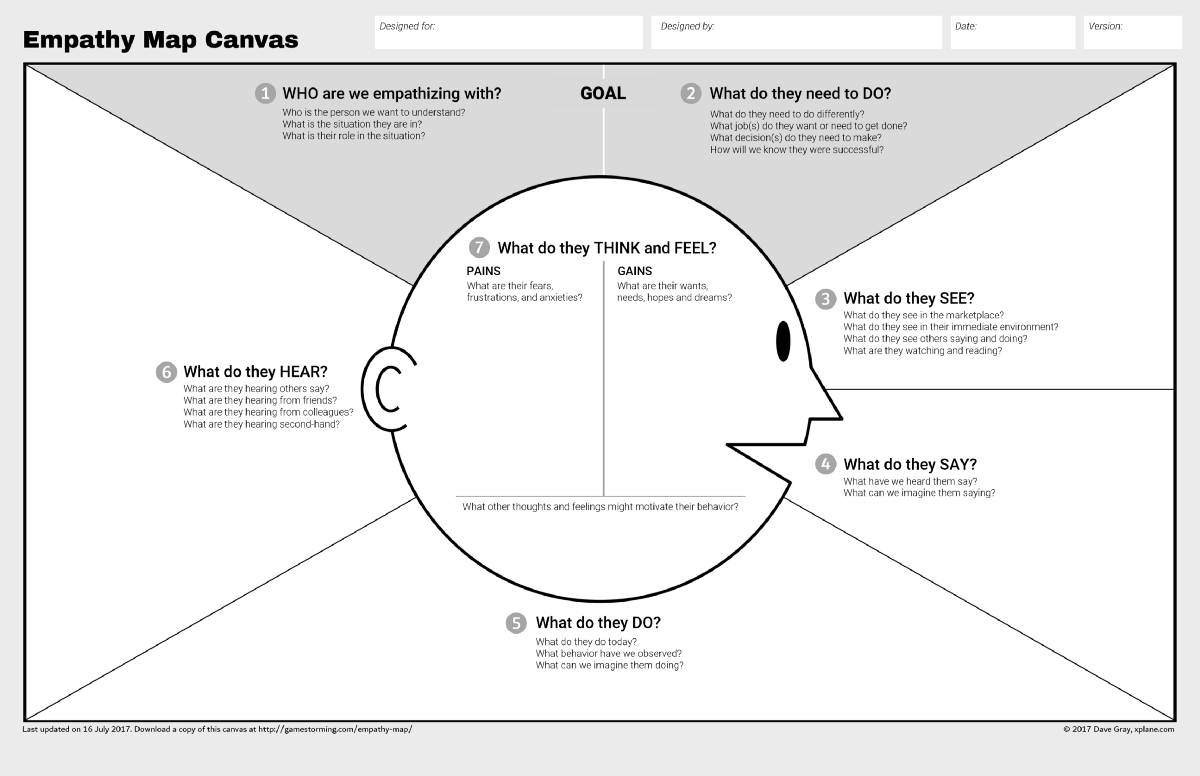Despite all the different definitions of the function, if there's one thing Product Marketing is responsible for almost everywhere, it's sales enablement.
Sales enablement basically refers to equipping your sales teams with all of the information and resources they would need to sell your product. The information could be about the product, market, and competitors, and the resources typically include demos and collateral. This is the quintessential interlock between Product Marketing and Sales, at most companies.
It becomes very important for companies and functional heads to think about how best these functions can be aligned and incentivized to avoid standard-issue cross-functional challenges.
Additionally, at growing companies, keeping this relationship smooth also warrants a certain set of qualities and attributes from people representing both functions, which in turn need to be enabled by the management.
I've previously shared my thoughts on how product marketers today have increased sales-related responsibilities at Startups. I now posit that for product marketing and sales to thrive, especially at growing companies, product marketers need to possess (or build upon) qualities of good salespeople, primarily in two aspects — external sales enablement & Internal product-sales.
Let's start with the easier-to-understand bit.
External sales enablement
As discussed above, sales enablement primarily involves training the sales people on pitches, preparing demos, and creating collateral like decks, brochures, case-studies, battle-cards etc — all of which ideally falls into the play-book.
These are invariably made taking into account the customer, industry, stage of sale, persona and many more factors. However, to turn this enablement into empowerment, and increase the overall impact of these activities, a couple of things need to happen -
- PMMs having ample first-hand experience and knowledge of a typical sale at their company.
- Proper deep analyses of sales processes and assets performance using data from CRM tools
Understanding your typical sale
20% of Product Marketers out there never even speak to customers, and I'd wager a higher percentage don't get to participate in sales meetings. This leads to an incomplete form of enablement where the PMMs are just building out content that they think helps close, but falling short on impact.
Additionally, even if they seek periodic feedback from the sales teams, field experiences are hard to document and analyse. This ends up creating a process and quality deadlock.
Do it yourself, or at least listen in, very closely
I strongly believe product marketers should make the first few sales for any new product. These calls or meetings should result in the MVP version of the pitch and the play-book. From that point on, the PMMs turn into observers.
If you're coming into the role post-PMF, I'd say still try and get a few pitches in, or at the very least, become a fly-on-the-wall in sales conversations. Notice how customers react to the various talking points, observe the environment, analyse it all, and improve your playbook.
While PMMs usually have a good understanding of communication across channels like email and social media, since they're the ones creating them, the actual one-on-one conversations and meetings end up as blind-spots. Thankfully, tools like Gong have made it easier for product marketers to gain a better understanding through recorded (and analysed) sales conversations.

Anecdotally speaking, only a PMM who has been in a few sales meetings will know that most meeting rooms with mid-market companies don't have projectors and giving your salespeople a whiteboard-walkthrough is just as important as a PPT.
Internal product sales
How do you get the salespeople to sell your product? One big challenge is that the sales teams don't understand the value and promise of what's been built, due to poor communication. However, there's a bigger challenge — the sales teams don't care. In mature companies, the sales-strategy or business-development teams will get them to care by mandating a percentage of revenue to come from certain product-lines, and also incentivise it according to business objectives.
But, what about at multi-product companies with central sales teams?
What about cases of NPD (New Product Development)?
What if the management hasn't mandated the sales team to sell your product, yet?
Due to alignment challenges and complex team structures, it becomes imperative to convince salespeople that selling your product is good for them. That job lands on the person who's accountable for the success of the product in the market - the product marketer.
Selling to sales
Product marketers need to act as the sales arm of the product team with the customers being the sales teams. But like in the case with everything sales, the product marketers should think about the following questions -
• How do you communicate with the sales team?
• How does your product fit into their portfolio?
• How easy or challenging is it for them to sell your product?
• What are their challenges and concerns?
• What incentives do they care about?and more
Internal sales can be just as complex and challenging as external sales. Having to do this can create a huge opportunity in profiling your own salespeople. An ICP of your sales team, perhaps? An internal sales strategy, even?
One solution that could potentially help is plotting your salesperson profile on the customer empathy map -
Additionally, borrowing from the previous section, the lack of data-driven analyses of sales processes hurts Product Marketers' chances of selling to salespeople.

Let the data tell you how
48.5% of Product Marketers don't even use CRM and that causes an information asymmetry between the two teams. Ideally, PMMs should be digging deep into CRM tools to analyse what's working and what isn't for the salespeople. The learnings from these tools can reflect in enhancements to the playbook, the QoQ sales strategy, as well as targets.
Standardised reports on Activities logged by Salespeople, Win/Loss analyses, Product Demos delivered, Leads worked on, along with timelines and conversion rates at every point can give Product Marketers ample context on what and how to improve. Additionally, looking at individual salespeople's performance can also give you insights on how to address their challenges better.
Doing it right
Sure, Product Marketers need to possess or build on qualities that are otherwise seen as critical to salespeople. But what are these qualities? I'll borrow from HBR;
A good salesperson must have at least two basic qualities: the ability to feel and a need to conquer.
Sales (team) empathy
Most salespeople are advised to build sales empathy, but what I think is just as important with regards to internal product sales is empathising with your salespeople.
Empowerment starts with empathy. Product Marketers need to empathise with the salespeople to better understand their incentives, requirements, and challenges, and only then can they create a successful working relationship with them.
I can unequivocally say that the best PMMs I've seen are the ones that can look at all the aspects affecting a salesperson - quarterly targets, performance bonuses, appraisals, etc - and then chart an engagement accordingly.
What this means for the Sales Teams - To benefit more from this relationship, the salespeople need to be more transparent with their opportunities and challenges — remember, the PMM wants to help you.
Enable the need to conquer
The need to conquer is highly personal and might be an innate trait or quality for the salesperson or the product marketer. However, companies can enable and support this need to conquer.
Drive ownership through better defined goals
The most significant difference between perennial top performers and everyone else is attitude. Elite salespeople approach their goals with a total ownership mindset.
The ownership mindset has a very direct impact on companies. A salesperson who is compensated for Bookings and not for Realised Revenue, ends up focusing only on new business which could be detrimental to the company's cash-flows. A product marketer, similarly, who isn't invested in the success of the sales team, can end up focusing only on hygiene tasks, and that could be detrimental to the growth of the product.
Similarly, a good PMM is someone who takes ownership of business goals. These are the people who go the extra-mile in enabling other functions. Enabling them to do so also makes for a more comprehensive approach than taking on mere vanity metrics like 'sales satisfaction scores' or 'asset utilisation rates'.
Making both teams collectively responsible for 'success' as a whole leads to a relationship where both teams work on the exploratory, strategic, and executional aspects together leading to a much better output that aids the overall product and business growth.
What this means for the Sales Teams - No one likes an extra set of eyes on their work. But sales teams should be able to visualise the long-term benefits of having a support system like the product marketing team, over the short-term inconvenience of increased internal reporting.
Closing thoughts
The need for product marketers to possess good sales qualities isn't stemming from their responsibilities towards enablement or internal pitching, but also a few other needs — Product Marketers should ideally also be facing customers at trade-shows and events, with prospect-focused webinars and product-launch communication.
However, at the very core - product marketers have to help product teams sell to sales, and help sales team sell to customers, making selling a crucial art for them to understand and master.
For business to extract greater value from both functions, the PMMs must be encouraged and empowered to stand in the shoes of the salesperson. This helps solve the businesses' challenges in communicating with the salespeople, as well as the sales teams' challenges in pitching to customers.


















 Follow us on LinkedIn
Follow us on LinkedIn



.svg?v=3c4c23cd72)